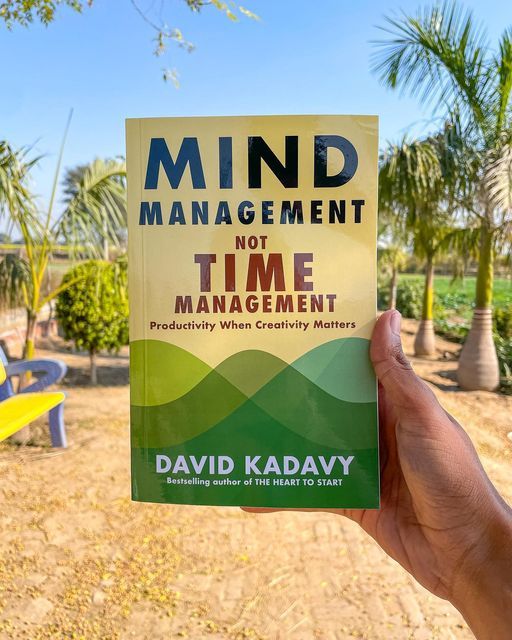
“Mind Management, Not Time Management”
“Mind Management, Not Time Management” by David Kadavy offers innovative insights into productivity by focusing on managing one’s mental energy and creativity rather than just organizing time. Here are ten key lessons from the book:
1. Energy Management Over Time Management: Instead of merely scheduling tasks, focus on managing your energy levels and mental states. Align tasks with your natural energy rhythms for optimal productivity.
2. Creative Cycles: Recognize and leverage your creative cycles. Everyone has periods of peak creativity and lower energy. Understanding these cycles helps in planning tasks that require different levels of creativity and focus.
3. Flow State: Aim to achieve a flow state, where you are fully immersed and engaged in an activity. This state of deep focus leads to higher productivity and more enjoyable work experiences.
4. Prioritize High-Impact Work: Focus on tasks that have the highest impact and contribute the most to your goals. This approach ensures that your efforts yield significant results, even if you don’t complete everything on your list.
5. Break Tasks into Manageable Chunks: Large projects can be overwhelming. Break them down into smaller, manageable tasks to make progress more achievable and reduce procrastination.
6. Embrace Imperfection: Perfectionism can hinder productivity. Embrace imperfection and focus on progress rather than perfection, allowing yourself to iterate and improve over time.
7. Minimize Distractions: Create an environment that minimizes distractions to enhance focus and productivity. This might involve setting boundaries, using tools to block distractions, or designing a workspace conducive to concentration.
8. Rest and Recovery: Regular breaks and adequate rest are crucial for maintaining high levels of mental energy and creativity. Prioritize sleep, downtime, and activities that help you recharge.
9. Mindful Work Practices: Incorporate mindfulness into your work routine. Mindfulness practices such as meditation, deep breathing, or simply taking moments of pause can help you stay focused and reduce stress.
10. Reflect and Adjust: Regularly reflect on your work habits and productivity strategies. Assess what works and what doesn’t, and be willing to adjust your approaches to better manage your mind and energy.
These lessons from “Mind Management, Not Time Management” encourage a shift from traditional time management techniques to strategies that prioritize mental well-being, creativity, and energy optimization for sustained productivity and fulfillment.





